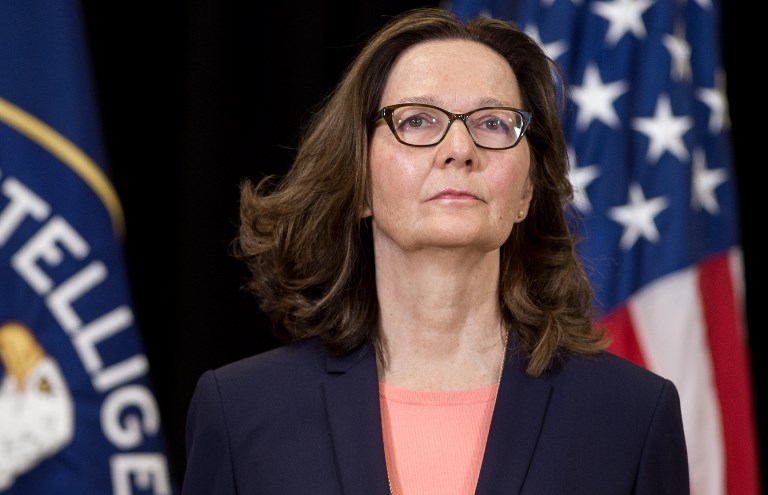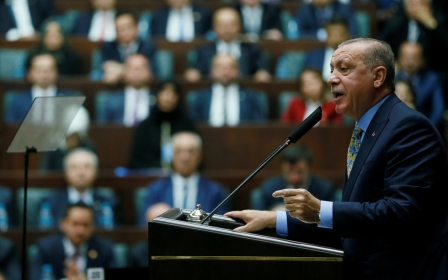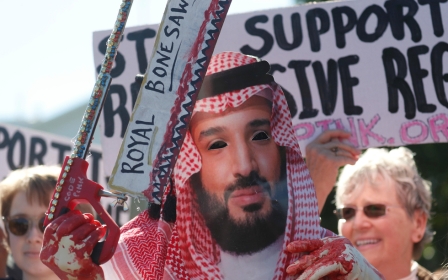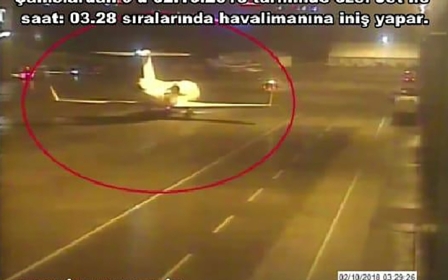Turkey shares 'all' Khashoggi murder evidence with CIA chief

Turkish intelligence has shared "all the evidence" relating to the murder of Saudi journalist Jamal Khashoggi with the CIA, pro-government Turkish media reported on Wednesday.
The CIA's director Gina Haspel visited the Turkish capital Ankara on Tuesday for talks with officials about the killing of the Washington Post columnist inside Saudi Arabia's Istanbul consulate.
Video images and audio tapes, as well as evidence gathered from the consulate and the consul's residence, were shared with Haspel during the briefing at the Turkish intelligence organisation (MIT), Sabah newspaper reported.
A Turkish source who listened in full to the audio recording has told Middle East Eye that Khashoggi was killed in seven minutes and his body was dismembered inside the consulate.
Sabah's report comes as US President Donald Trump intimated for the first time that Saudi crown prince Mohammed bin Salman (MBS) could have been involved in Khashoggi's murder.
"The prince is running things over there more so at this stage," Trump told the Wall Street Journal in an interview late on Tuesday. "He's running things and so if anybody were going to be, it would be him."
The US also announced on Tuesday plans to penalise 21 Saudi officials who it says are responsible for the murder by either revoking their US visas or making them ineligible to enter the US, but has not specified which citizens will be impacted.
An adviser to Turkey's president meanwhile said MBS had "blood on his hands" over Khashoggi, the bluntest language yet from someone linked to Erdogan.
"It is a disgrace that reaches all the way to Crown Prince (Mohammed bin) Salman. At least five members of the execution team are (Mohammed bin) Salman's right hands and are people that wouldn't act without his knowledge," Ilnur Cevik, one of several advisers to Turkey's Erdogan, wrote in the Yeni Birlik newspaper.
"Even if US President Trump saves (Mohammed bin) Salman, in the eyes of the world he is a questionable person with Khashoggi's blood on his hands," Cevik's column said.
In a much anticipated speech on Tuesday, Turkish President Recep Tayyip Erdogan stopped short of pointing the blame at the Saudi leadership for the death of the journalist.
The president did, however, underline that Turkish authorities have evidence that the murder was meticulously planned and called for 15 Saudi suspects to be extradited to Turkey.
"The incident took place in Istanbul. Therefore the adjudication... should be carried out in Istanbul. That's my proposal," the president told a parliamentary commitee.
While Erdogan also confirmed many of the details that Turkish sources have leaked to the media in the past three weeks, the whereabouts of Khashoggi's remains are still unknown.
The 59-year-old vanished on October 2 after entering the Saudi mission to obtain documents for his wedding.
Erdogan said that a 15-person team came from Riyadh to kill Khashoggi, including by carrying out reconnaissance outside Istanbul and deactivating security cameras at the consulate.
Turkish police searched the kingdom's Istanbul consulate, and the consul general's residence as well as hunting for evidence in an Istanbul forest.
On Tuesday, the police searched an abandoned car belonging to the Saudi consulate in an underground car park in the Sultangazi district of Istanbul.
After denying that Khashoggi was killed for 17 days, Saudi officials admitted on Saturday that he had been murdered, but have denied that the Saudi leadership was involved.
New MEE newsletter: Jerusalem Dispatch
Sign up to get the latest insights and analysis on Israel-Palestine, alongside Turkey Unpacked and other MEE newsletters
Middle East Eye delivers independent and unrivalled coverage and analysis of the Middle East, North Africa and beyond. To learn more about republishing this content and the associated fees, please fill out this form. More about MEE can be found here.




